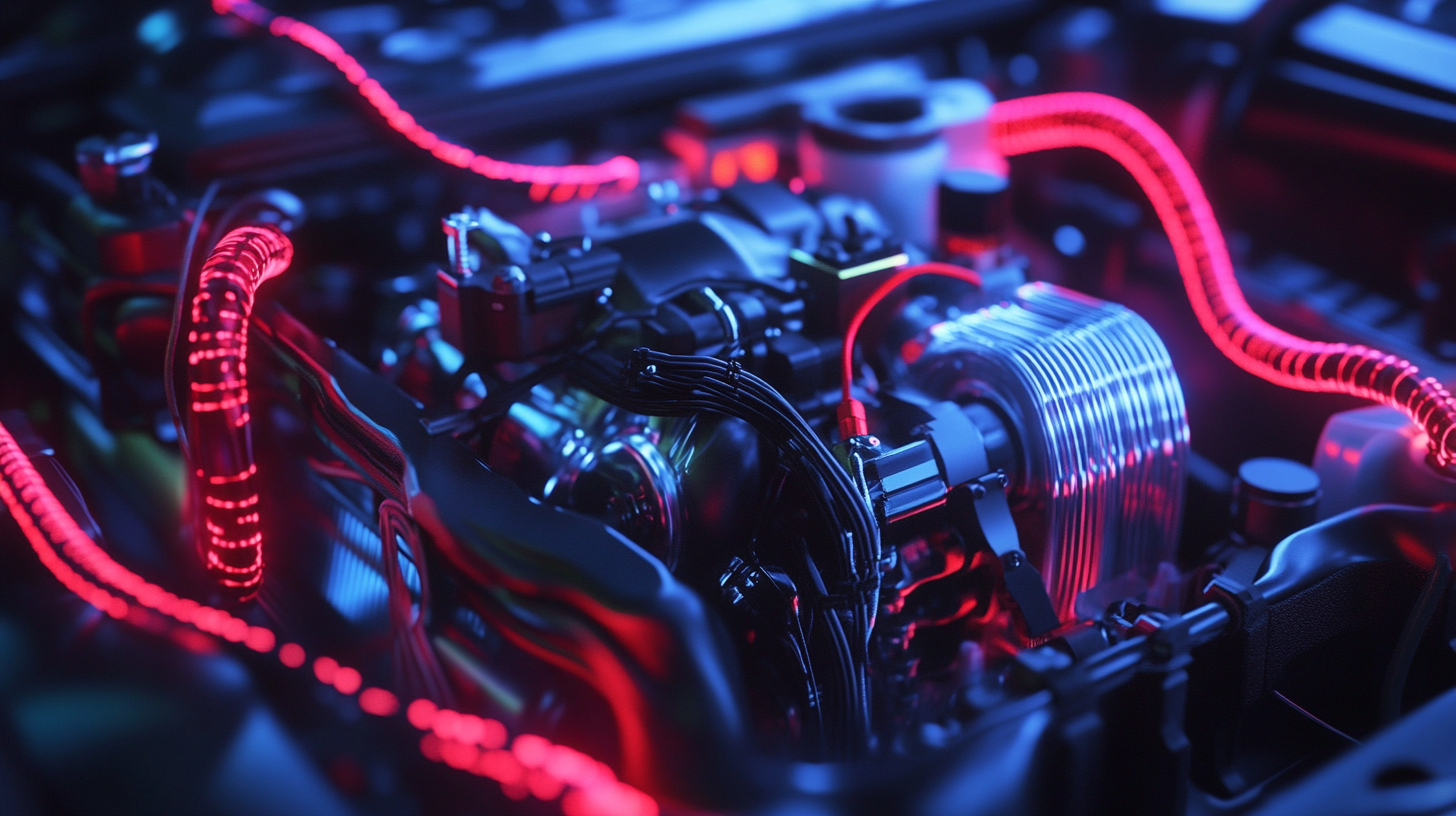

In the ever-evolving world of automotive technology, the significance of quality components cannot be overstated, especially when it comes to the Automotive Connector. These critical elements serve as the backbone of vehicle systems, ensuring seamless communication between various electronic components. As vehicles become increasingly advanced, incorporating features like advanced driver-assistance systems and infotainment interfaces, the role of robust Automotive Connectors becomes essential. This blog delves into what makes the best Automotive Connector a vital asset for your vehicle, exploring the benefits of superior after-sales service, the impact on maintenance costs, and practical guidance on selecting the right connectors for your specific needs. By understanding these factors, vehicle owners and manufacturers can enhance reliability and performance while minimizing long-term expenses associated with repairs and replacements.

In modern vehicles, the importance of high-quality automotive connectors cannot be overstated. These essential components ensure seamless connectivity between various vehicle systems, playing a critical role in the overall functionality and safety of automotive technology. As demand for electric and hybrid vehicles continues to grow, the automotive connector market is expected to see significant growth, driven by an increasing need for efficient power management and data transfer.
**Tips for Choosing Automotive Connectors:**
1. **Consider Durability:** Look for connectors that are designed to withstand harsh environmental conditions, including extreme temperatures and moisture, to ensure longevity and reliability.
2. **Check Compatibility:** Ensure that connectors meet specific industry standards and are compatible with your vehicle's systems to prevent connectivity issues.
3. **Focus on Innovation:** Opt for connectors that incorporate advanced technologies such as sealing and locking mechanisms to enhance performance and minimize the risk of failures.
The evolution of vehicle automation and electrification further highlights the need for robust connectors. With projections indicating a compound annual growth rate surpassing 7% for automotive connectors between 2023 and 2032, it is imperative for manufacturers to invest in high-quality solutions that align with modern automotive challenges.
| Feature | Importance | Impact on Vehicle Systems |
|---|---|---|
| Durability | Resistant to vibrations, extreme temperatures, and moisture | Ensures long-term reliability and minimizes maintenance needs |
| Corrosion Resistance | Prevents degradation of connections over time | Enhances electrical continuity and system functionality |
| Ease of Installation | Streamlines the assembly process | Reduces labor costs and time during manufacturing |
| Compatibility | Fits a range of applications and systems | Facilitates integration with existing vehicle architecture |
| Electrical Performance | Supports high current and voltage requirements | Enables efficient operation of electronic systems and safety features |
When it comes to vehicle systems, the role of automotive connectors cannot be underestimated. Reliable automotive connectors are paramount to ensure optimal performance across various functions in a vehicle, from engine management to safety features. The key features of a dependable automotive connector include robustness, corrosion resistance, and compatibility with various environmental conditions.
One crucial tip is to select connectors engineered with high-quality materials that can withstand temperature fluctuations and vibrations. This not only extends the life of the connector but also minimizes the risk of failures that could compromise vehicle performance. Additionally, opting for connectors with waterproof and dustproof ratings is essential for ensuring longevity, especially in environments where exposure to moisture and contaminants is prevalent.
Another important consideration is the ease of installation and maintenance. Choosing connectors that offer clear labeling and a user-friendly design can significantly reduce installation time and potential errors. Regular inspection and cleaning of connectors also play a vital role in maintaining their reliability, helping to identify any signs of wear or corrosion early on. Following these tips will help ensure that your vehicle systems remain efficient and reliable for years to come.

The automotive industry is witnessing an increasing reliance on high-quality connectors to ensure the reliability and functionality of vehicle systems. China's manufacturing sector plays a pivotal role in this landscape, significantly influencing both production costs and quality standards. According to a report by the Automotive Components Manufacturers Association, over 30% of global automotive component production is based in China, highlighting its dominance in the supply chain. This robust manufacturing base enables the consistent delivery of automotive connectors that meet stringent international standards.
Chinese manufacturers leverage advanced technologies and rigorous quality control processes to produce connectors that withstand extreme conditions. A recent study from Market Research Future indicates that the global automotive connector market is expected to reach $44 billion by 2025, with a notable portion of that growth attributed to the reliability of products sourced from Chinese factories. These connectors are essential for various vehicle systems, including infotainment, safety, and engine management systems. As automakers strive for enhanced performance and safety features, the demand for dependable connectors manufactured in China is set to grow, ensuring seamless integration of innovative technologies in modern vehicles.
Innovations in automotive connector design are pivotal for enhancing vehicle systems, especially with the increasing integration of advanced technologies such as adaptive lighting, cruise control, and park assistance. These innovations are driving demand in the automotive connectors market, which is projected to reach $22.8 billion by 2033. As vehicles evolve to accommodate sophisticated features, the necessity for reliable and efficient connectors becomes paramount, facilitating seamless communication between various electronic components.
Choosing the right automotive connector is crucial for ensuring the reliability and performance of your vehicle's systems. When selecting connectors, begin by assessing the specific requirements of your application, such as environmental factors, electrical specifications, and mechanical constraints. Durable materials, moisture resistance, and temperature tolerance are essential qualities that help connectors withstand harsh conditions. For instance, connectors used in engine compartments must endure extreme temperatures and vibrations, necessitating careful material selection and design considerations.
Another key practice is to evaluate compatibility with your existing systems. Ensuring that the connector fits seamlessly with the vehicle’s wiring harness and adheres to industry standards can prevent connectivity issues and reduce maintenance needs. Additionally, it's wise to consult with manufacturers about their testing and certification processes, as connectors that meet rigorous quality assurance standards will likely offer better longevity and performance. By following these best practices, you can secure the most suitable connectors that enhance the overall reliability and functionality of your automotive systems.
